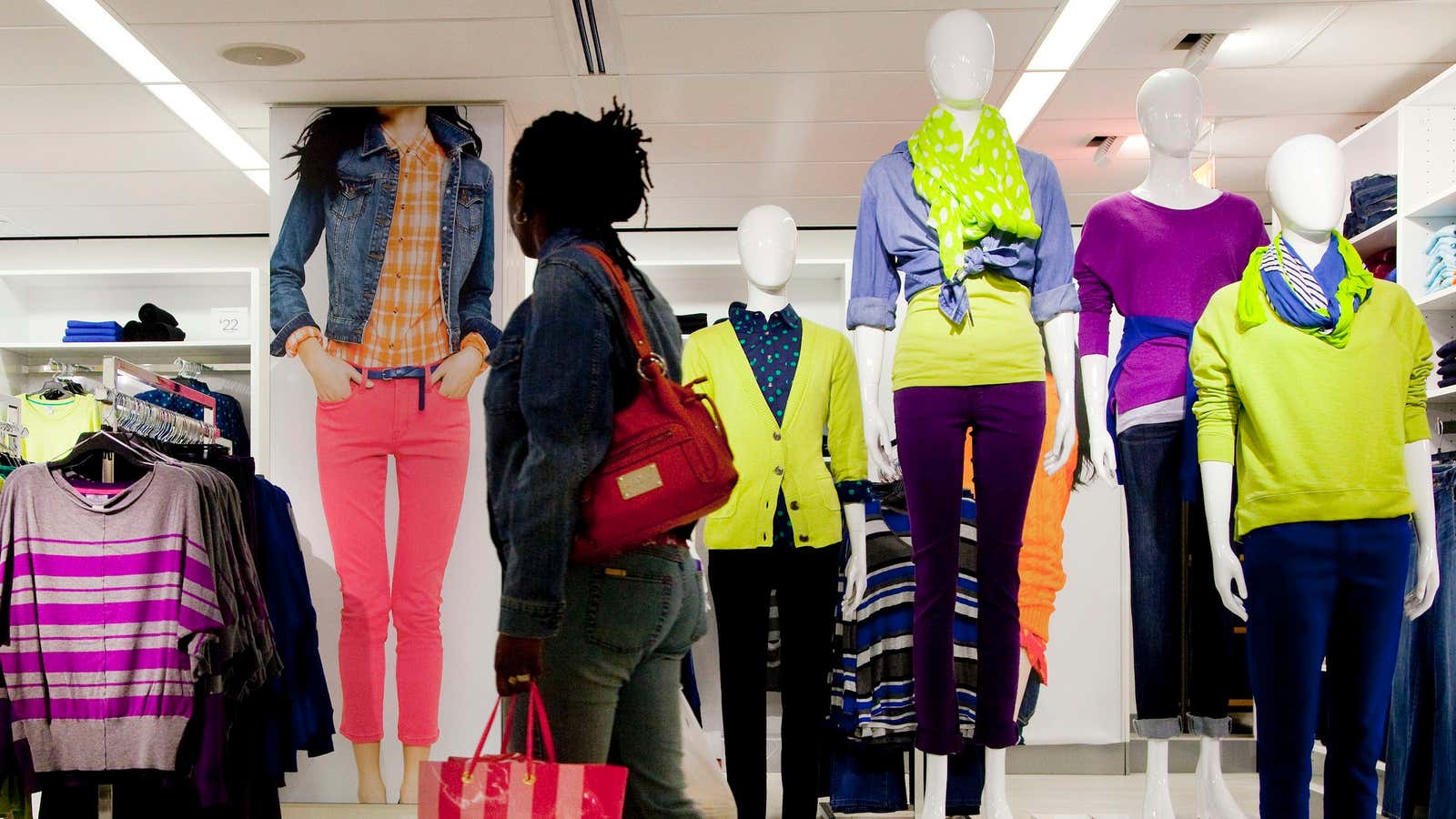JC Penney, the American discount clothing retailer, seemed like it had all the ingredients needed for a turnaround. Activist investor Bill Ackman lit a fire under the company when he unveiled a 16% stake in the retailer in 2010. He brought in Apple stores retail master Ron Johnson, a hire that was praised by investors.
But Johnson’s misjudged overhaul of JC Penney’s sales strategy, abolishing the discount coupons and sales that used to be the company’s stock-in-trade, has caused the stock to fall by 53%. Yesterday, the retailer announced it was increasing its borrowing capacity to $1.85 billion, which allayed concerns about cash flow but made some analysts nervous about its credit risk. That came after JC Penney received notice of a bond default. And the retailer is expected to post another drop in sales when it reports earnings on Feb. 27.
All of JC Penney’s woes begs the question: can some companies not be saved?
There are a host of companies that fall on hard times because of technological advances or changing consumer trends. Some fail to adapt in time, but hang on longer than they should because a new CEO or activist investor sees some hope. An example is department-store chain Sears: Analysts are betting against hedge fund manager Eddie Lampert, the new boss who hopes to turn it around. Another activist, Carl Icahn, put money into video-store chain Blockbuster in hopes of reviving it, but in 2011, he called it his worst investment. Now Blockbuster looks like it’s on life support under its new owners, Dish Network, which bought it out of bankruptcy in 2011. Last month, Dish announced it was closing another 300 Blockbuster stores.
Blockbuster now seems to be headed the way of Borders, the bookstore chain that shut down in 2011. Borders failed where its rival Barnes & Noble has so far survived, largely because B&N recognized in time the threats and opportunities of online retail, and brought out its own e-book reader, the Nook, to compete with Amazon’s Kindle.
JC Penney at one point seemed to be adapting to a changing world. But now it increasingly looks like yet another desperate attempt to prolong a failing brand. To be fair, clothing stores in general are being hit by weak US retail sales, which rose by only 0.1% in January. And under Johnson’s vision, redesigned JC Penney outlets are doing better than older models. But the company’s decision last month to bring back coupons may be too late for customers who left and are not coming back. Younger shoppers have turned elsewhere, like H&M. In the meantime, rivals Kohl’s and Macy’s are doing well.
Ackman says he will give Johnson three years to turn JC Penney around. But shoppers and investors may not give the department store that much time.




